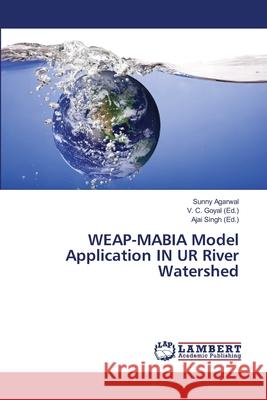WEAP-MABIA Model Application IN UR River Watershed » książka
WEAP-MABIA Model Application IN UR River Watershed
ISBN-13: 9783659509490 / Angielski / Miękka / 2019 / 100 str.
Many watersheds experience scarcity of water for agricultural and domestic use for most part of the year. Water Evaluation and Planning system (WEAP)-based decision support system can prove to be an effective tool for water allocation, supply and demand analysis. In the present study, spatially distributed model by using WEAP-MABIA method has been developed for analysis and simulation of agricultural water demands in the Ur river watershed. WEAP-MABIA method uses dual crop coefficient approach which helps in computing the separate soil evaporation and transpiration under various water availability situations. The model was calibrated using PEST tool, available in WEAP. The calibrated model was used for estimating future water demands and unmet demands by using future climate series. A high unmet demand exists in the case of agriculture since the first priority for water supply is meant to be for domestic purpose. The area under agriculture in Ur river watershed is large, while respective water supply is low. This gap puts an extra pressure on water resources leading to over extraction of groundwater and related problems.











